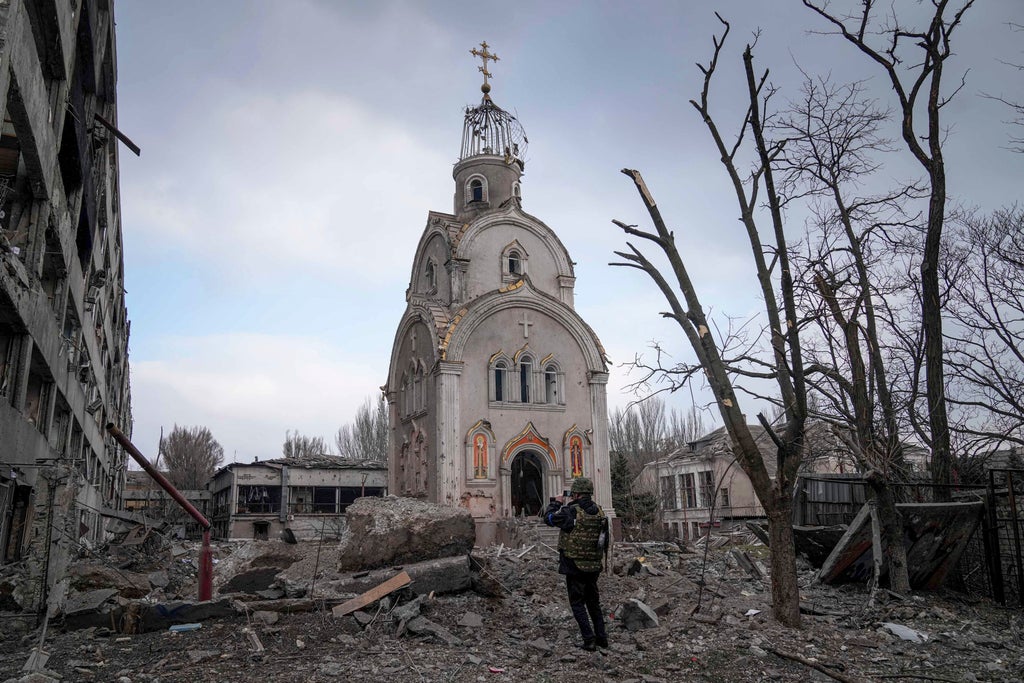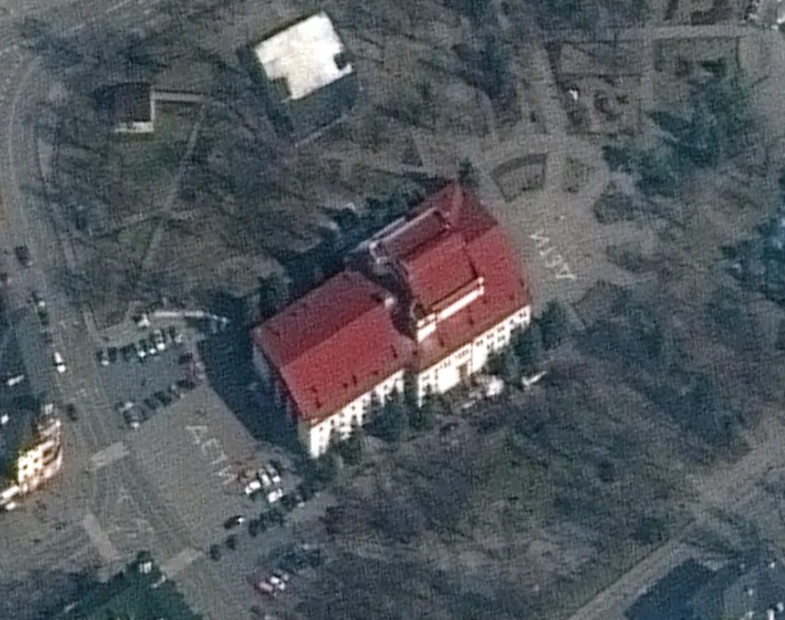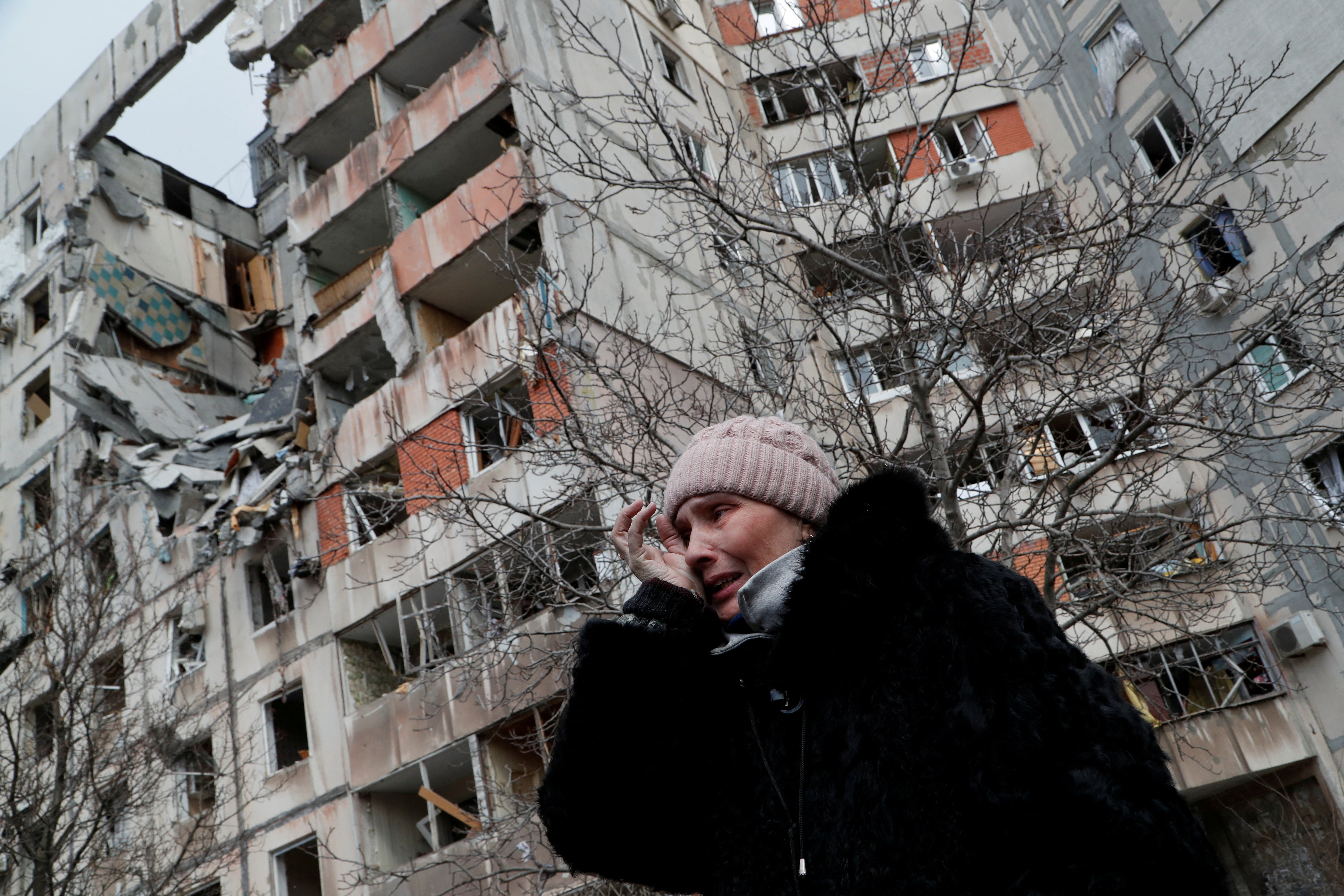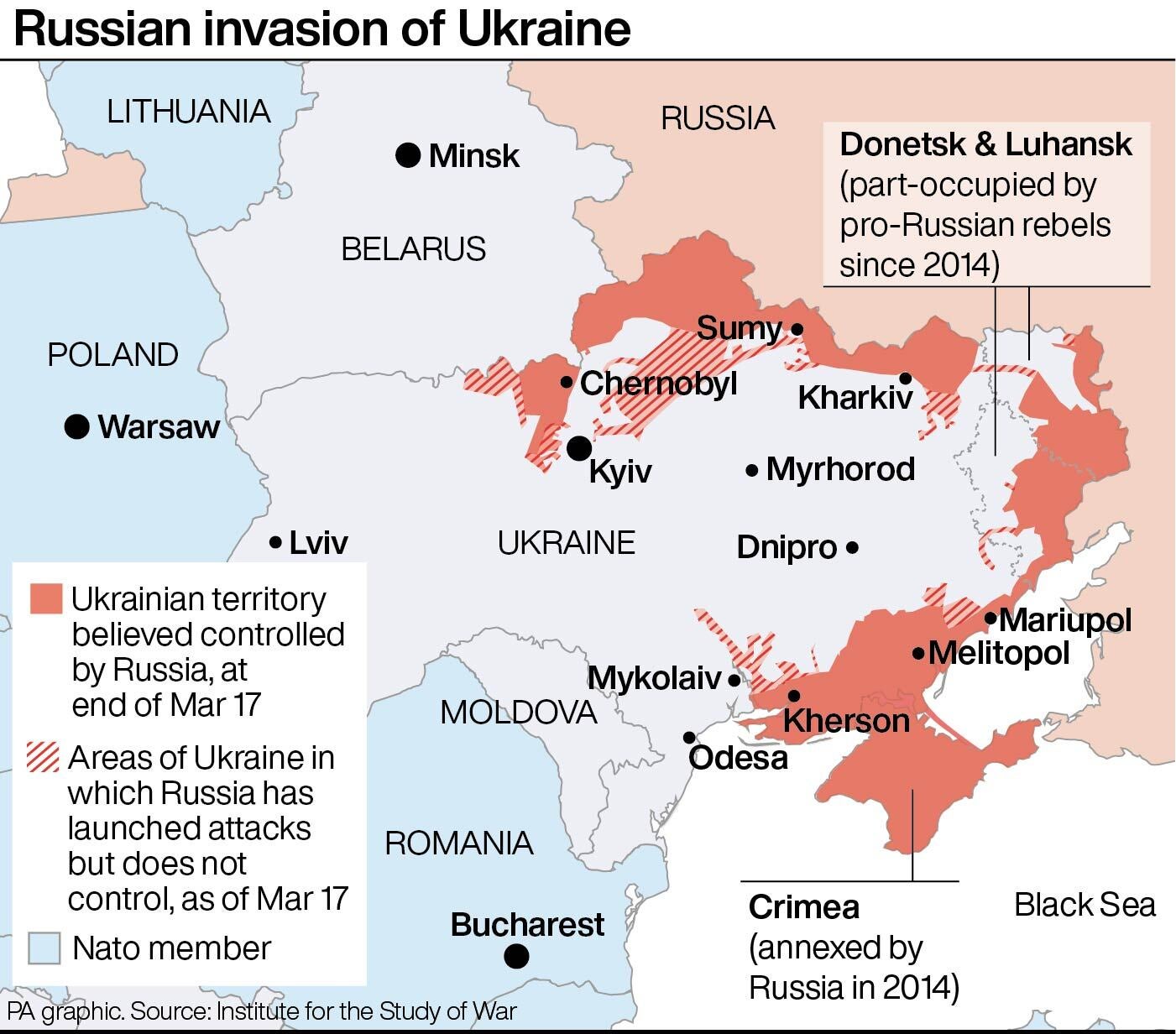
Fighting has reached the centre of the besieged Ukrainian port city of Mariupol, prompting mayor Vadym Boichenko to warn: “There’s no city centre left”.
He told the BBC: “There isn’t a small piece of land in the city that doesn't have signs of war.”
Russia’s defence ministry said on Friday that its forces were “tightening the noose” around the city, and that “fighting against nationalists” was taking place in the city centre.
Around 80 per cent of Mariupol’s buildings are thought to be damaged or destroyed, according to the latest Ukrainian intelligence.
“Tanks and machine-gun battles continue,” Mr Boichenko said, appearing to confirm Moscow’s claims. “Everybody is hiding in bunkers.” He added that the fighting was “really active”.
Mariupol, a strategically important city in Russia’s plan to link the separatist regions of Ukraine to the east via a corridor to Crimea, has been relentlessly bombed since Vladimir Putin launched his full-scale invasion on 24 February. The large majority of footage coming out of Ukraine, to show the west the devastation being caused by Mr Putin’s troops, is from there.
It has also seen some of the Kremlin’s most shocking attacks on civilians – the most recent being the Donetsk Regional Theatre of Drama, which was bombed on Wednesday, where hundreds of children and women were sheltering in a basement underneath.
The theatre in Mariupol’s city centre, next to the Sea of Azov waterfront, had been designated as a shelter for civilians early on in the conflict. Sergei Orlov, the city’s deputy mayor, said originally up to 1,200 people had been there. Human Rights Watch, citing interviews with evacuees, later put that number at between 500 and 800.

“More than 130 people have been saved,” Ukrainian president Volodymyr Zelensky said in an address on Facebook. “But hundreds of Mariupol residents are still beneath the rubble.” He vowed to continue the rescue operation “despite shelling” by Russian forces. Local officials said they did not have any information about the number who had been killed but one person was seriously injured.
Satellite imagery, taken by Maxar Technologies two days before the air strike on 14 March, revealed that the Russian word for “children” (дети) had been written in large white letters in front of and behind the theatre. It suggested that forces from above would have known civilians were sheltering inside it.
Russia denied responsibility for the attack – as it did for the blown-up maternity hospital, also in Mariupol, the week before – instead accusing the Azov Battalion, a far-right Ukrainian militia, of blowing it up. No evidence was given to back up the claim.

Mr Zelensky said early on Saturday more than 9,000 people were able to flee Mariupol in the last 24-hour period and that in all, more than 180,000 have sought safety via humanitarian corridors.
Despite this, more than 300,000 Mariupol residents remain trapped in basements and shelters across the city as Russian forces continue their assault. The large majority of those left have little to no access to essentials such as food, water and electricity.
In a call on Friday, French president Emmanuel Macron told Mr Putin he was “extremely concerned” about the situation in Mariupol, according to his office.
The same day, Ukraine’s defence ministry said the situation in the port city meant it had “temporarily” lost access to the Azov Sea, which connects to the Black Sea – a significant loss for the country.

The ministry did not specify in its statement whether Ukraine’s forces had regained access to the Sea.
Despite Russian forces making “minimal progress this week,” according to British intelligence, heavy shelling was also reported going into the weekend in the encircled cities of not just Mariupol – but also Kharkiv, Chernihiv and Sumy.
The Independent has a proud history of campaigning for the rights of the most vulnerable, and we first ran our Refugees Welcome campaign during the war in Syria in 2015. Now, as we renew our campaign and launch this petition in the wake of the unfolding Ukrainian crisis, we are calling on the government to go further and faster to ensure help is delivered. To find out more about our Refugees Welcome campaign, click here. To sign the petition click here. If you would like to donate then please click here for our GoFundMe page.







